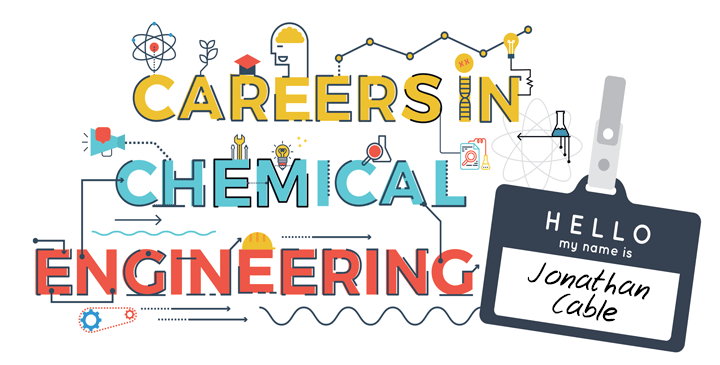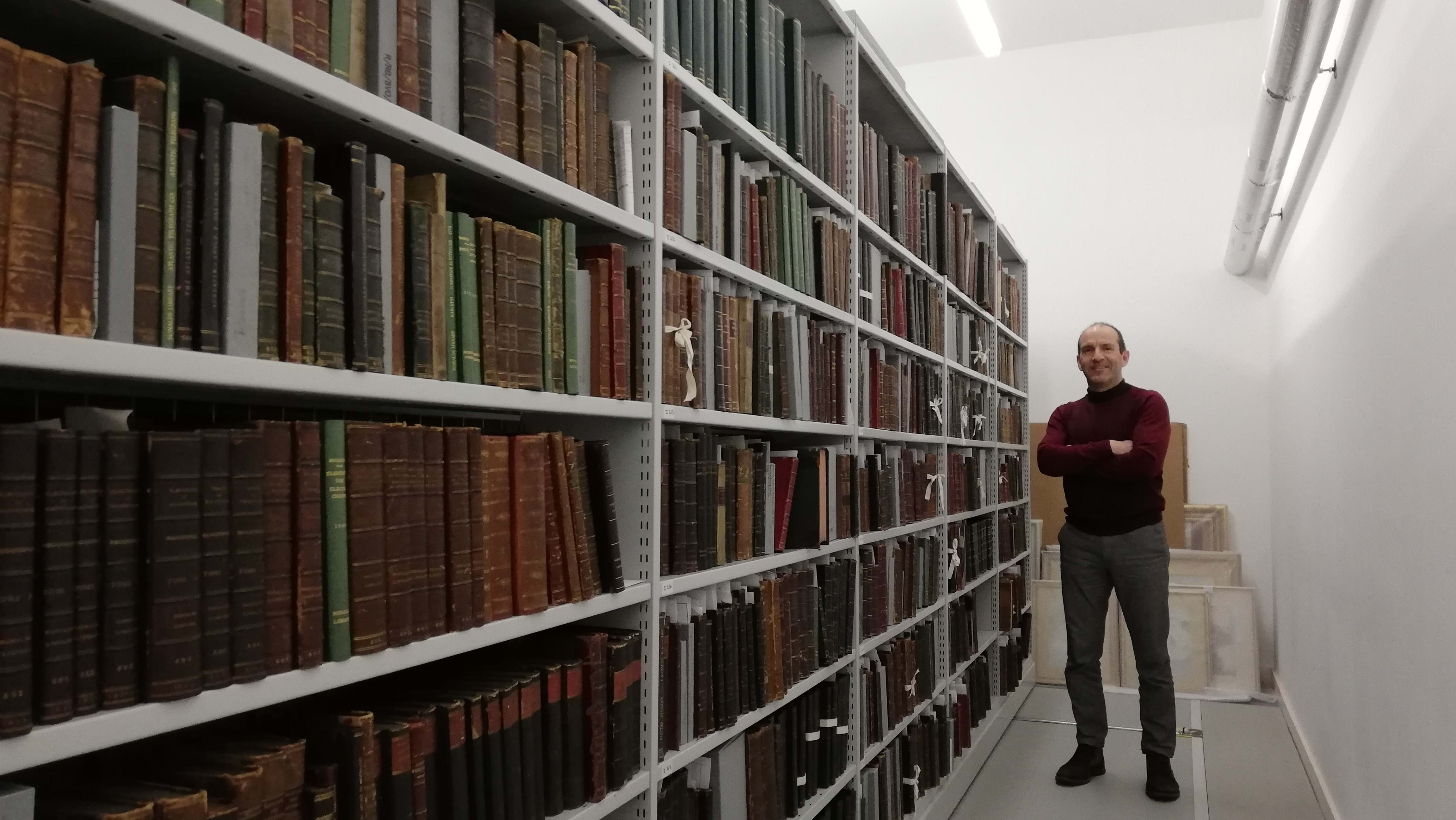Careers in Chemical Engineering: Jonathan Cable

Yasmin Ali interviews Jonathan Cable about his travels through engineering, to corporate finance, to archiving
MY NAME is Yasmin Ali and I’m a chemical engineer working in the energy sector. I was originally attracted to study chemical engineering because of the breadth of career opportunities it provides. To showcase this diversity, I've been talking to a range of fellow chemical engineers to find out what they do, how they got there, and why they do it. For this instalment, I spoke to Jonathan Cable, Archivist for the Institution of Engineering and Technology (IET).
A few years ago, I was interested in reading the Women’s Engineering Society’s early journals, first published in 1919. These are held at the IET’s Savoy Hill House archives in London, so I decided to visit.
I descended the stairs into the basement of the building, and was greeted by Jonathan ("Jon"), who had the journals ready for me. We chatted for a while, and I was surprised to hear that he, like me, had studied chemical engineering at the University of Nottingham.
Curious to find out how he got into archiving, I delved deeper into his background. At school, he was good at the sciences, and decided to study chemical engineering after a visit to Bradford University chemical engineering department.
“My parents hadn’t gone to university, there was no history in the family of doing sciences or going to university,” Jon explained.
After graduating, he managed to secure a place on Shell’s competitive graduate scheme, starting off as an Assistant Shift Manager at a new-build lubricants plant.
“Sometimes I was the most senior person there, which was scary. I was dropped in the deep end.”
Breaking into the City
Jon’s interests were on the business side, so he moved to London to work in retail marketing (eg petrol pricing), before moving into oil derivative trading. For someone like Jon, who is clearly routed in logic, working for an oil trader who he felt operated by ‘gut feel’ was uncomfortable. After two years, Jon pursued his dream to work in project financing in the City.
“I tried to use my trading experience to leap into the City. The barriers to getting in were really high if you hadn’t started there." Instead, Jon was employed as a Personal Assistant to the chief executive of a money broking firm, supporting him with operational performance analysis.
Realising that his career progression was limited, Jon spotted an entry-level corporate finance role with Price Waterhouse, advertised in the Financial Times and managed to secure it. He worked his way up to Associate Director, getting involved in many facets of corporate finance.
Hostile dummy bids
“For large companies, we did things like hostile dummy bids, these were very secretive.” Jon told me.
He went on to explain that if company A approaches company B for a take-over, and the board does not come to an agreement, company A may become a ‘hostile bidder’, going directly to the shareholders without the board’s agreement.
“If a chief executive or chairman was worried they were going to be subject to a hostile bid, they wanted you to write the document that would be issued by the hostile bidder to attack the performance of the management team and the company,” thus giving them an insight into what might be thrown at them.
“It goes in a very sealed envelope back to the chief executive.”
From PricewaterhouseCoopers (as it later became), Jon was headhunted into a small corporate finance boutique, and spent a number of years hopping through boutiques.
“I really loved my time in finance, but the hours were incredibly long, and the work was very hard. I have always had a passion for history, so once I had paid my mortgage, I decided that I could pursue a very different career. That was when I made the move into the archive profession.”
How to become an archivist
Changing careers into archiving is by no means easy. First you need a degree; Jon studied a master’s in Archives and Record Management at UCL. Demand for these degrees is high, so volunteering for archives is a necessity before being accepted onto the course.
“I volunteered in archives for two years first, and shadowed people. I wanted to find out if this was the right thing for me.”
Unlike engineering, this profession is female dominated. In addition, few people change careers into it, creating some barriers.
“It was hard to convince people why I was doing it. I was outside the demographic and most people thought I had too much experience to start at the beginning again. I spent most of the time convincing them why I wanted to do this. I came out top academically from UCL, which helped to show my commitment.”

The IET archives
Jon’s role now is looking after the IET’s archive collections, which include letters from the likes of Michael Faraday and Ada Lovelace.
The job involves managing the Archive Centre and collections, cataloging items, handling donations and logistics. He also manages internal and external enquiries, getting about 400 per year. These range from genealogical enquiries to requests for images from media and other organisations.
“As archivists, we’re not expert historians, but we know our collections and provide access. Archives are relatively few and far between, and they are usually run on a small budget." Jon enjoys the challenge of figuring out how to run things more productively and efficiently.
There is also a sense of sheer joy at discovering new things in the collections, and making connections between seemingly unrelated topics.
“If you like cryptic crosswords, if you’ve got a scientific and engineering background, and logic is one of your core skills, then this is just perfect because you start to make connections between stuff.”
Jon’s work life balance has vastly improved from his corporate finance days, giving him plenty of time to pursue other hobbies. He has been wake-boarding and water-skiing for many years, with his wife, a mechanical engineer who was also his trampolining coach at University.
My visit to the IET archives uncovered much more than I had expected, showing me the breadth of opportunities out there for chemical engineers.
For more articles in this series, visit https://bit.ly/2DZmjA4
Recent Editions
Catch up on the latest news, views and jobs from The Chemical Engineer. Below are the four latest issues. View a wider selection of the archive from within the Magazine section of this site.




